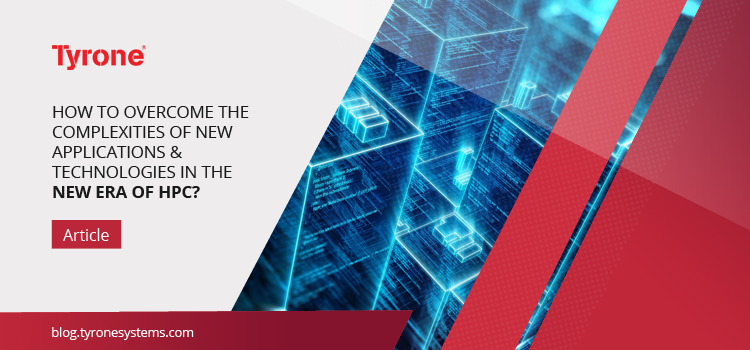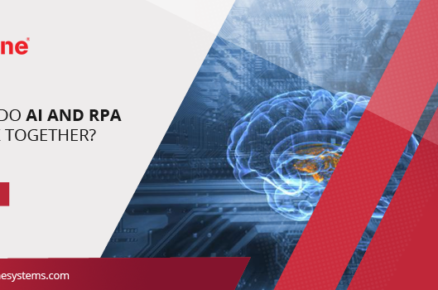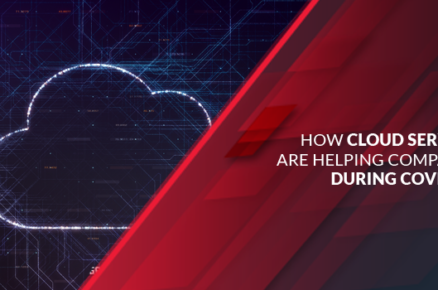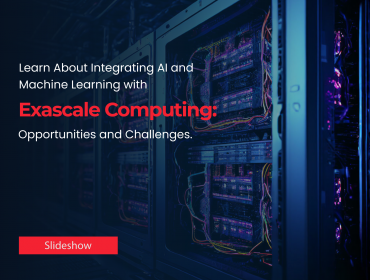HPC was earlier limited to the research labs of government agencies and some academic institutions. Today, HPC surrounds distributed computing while converging with artificial intelligence and data analytics. But with the recent increase in mixed workloads and heterogenous applications infrastructure HPC has grown into a more complex subject. This article addresses simple yet helpful ways of mitigating these complexities and harnessing the benefits of HPC.
How to Handle Complexities In HPC Applications & Technologies
- Tackle The Complexities of Cloud in HPC
CloudOps are the most complex issues prevalent in HPC technologies and applications. The CloudOps integrated all the technology stacks, cloud systems, approaches, and platforms, which further created a complex system to be handled by the teams. DevOps was found to be the correct solution for this problem, however, lack of collaboration between the two outcasted the solution.
Furthermore, many companies have centralized ops to minimize costs. Complexities would require you to invest more in the Ops and would increase the cost of managing cloud infrastructure and applications. Small DevOps teams are not capable of handling overall complexities and would only address data stores and application concerns including built, operations, and deployment.
Now, the solution to the issue is to apply smart solutions and segregate the different operations of the system. You can do this by allocating the native Ops Consoles to all the Ops teams. These consoles might include those made by Google, AWS, and Microsoft. Although, if this list adds other cloud-native databases with performance monitoring, machine learning systems, IoT, and serverless systems, you can manage all at the same time using native tools. However, you might need professionals with a specific skill set for each.
- Apply General Layers of The Safety
The HPC systems offer major complexities in the security aspects. The rise of vulnerabilities in the storage, databases, and platforms as the cloud services forget fixes and updates. The actual risk is aligned with the number of resources required to be deployed to prevent risks that can be handled. As observed in the realistic conditions, the risks are way too more than the actual capability of the enterprise.
The management of full-time security operations staffers with the accurate number of virtual servers working on different types of platforms and databases by using distinct brands would offer ease of operation, however, if this task is increased with the adoption of the cloud network, several technologies like Machine learning, IoT and analytics in a high-speed transaction requirement, this becomes extremely difficult.
The requirement to manage these tasks without any general security service like access management and identity that extends across the public cloud ecosystems would impose major complexities and vulnerabilities. This would also enhance the potential possibilities of threat and the increase has certainly increased up to multiple times. The task with HPC integration or without HPC integration would be equally important.
You can increase the resources anytime while also enhancing the number of full-time security operations staffers. However, that would be an extreme rise in the budget. Also, the whole purpose of adopting the cloud was to minimize the cost. To mitigate this challenge of complexity, you need to adopt certain layers of security in your business. These security layers could be adopted through cloud services and brands along with services under those brands including Splunk, F5, and ping identity.
Though they lack the accurate efficiency found in the cloud-native tools and the reason is that they should suffice all requirements to all clouds and their services. The least general denominator approach would indicate that adopting management and visibility potential divided into subsets in the native platforms. With the advancement in the monitoring and administrative tools, these approaches would adopt AiOps along with other operational tools to harness HPC technologies like machine learning and remove the limitations.
- Adopt A Software That Turns Complexity into Flexibility
There is certain software in the market, which would automate the complex issues and further adopt flexibility. This software builds and runs pre-tests to create an important high-performance cluster with specifications and tools offering extensive benefits. This software offers monitoring services while understanding resource utilization and allocating resources as per client requirements. This software integrates various features and functions to amplify the utility and efficiency of the system.
These were some ways you can mitigate the complexity of the HPC systems and would further make your operations efficient. It’s significant to follow these methods to accurately harness the potential of HPC applications and technologies in your business framework.
Netweb HPC on Cloud Solutions
Reduce time to results by securing your high performing computing tasks on Netweb Cloud. Whether the solution requires a mixed workload environment or one that is fully contained in the cloud, our solution reduces costs by optimizing the right technology to meet your needs. For more information visit us: https://netwebcsp.com/hpc-on-cloud-service/












